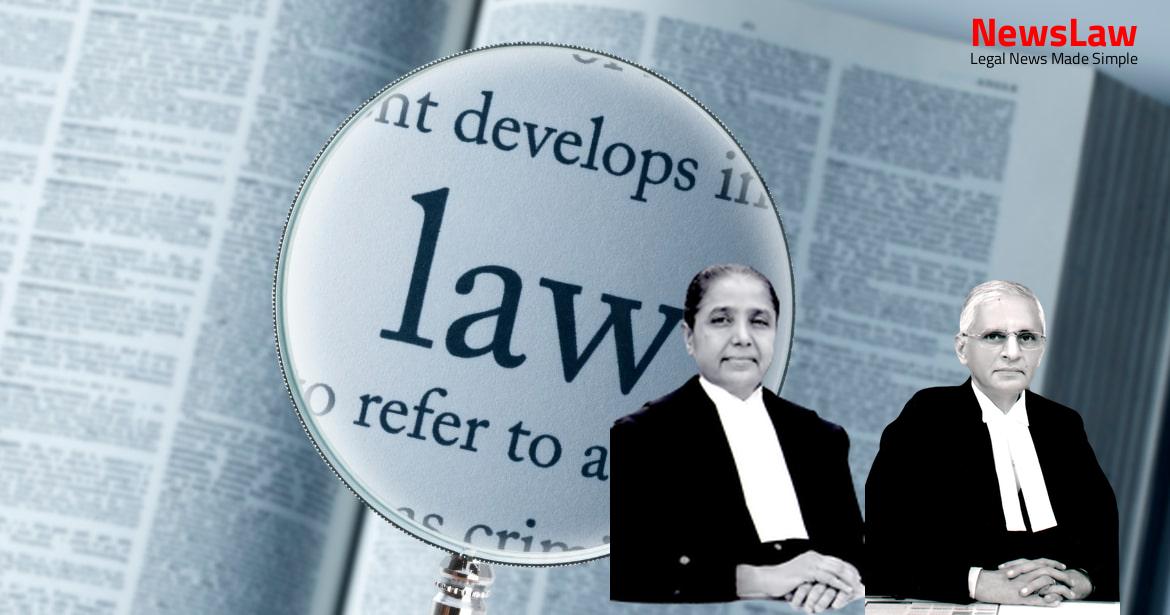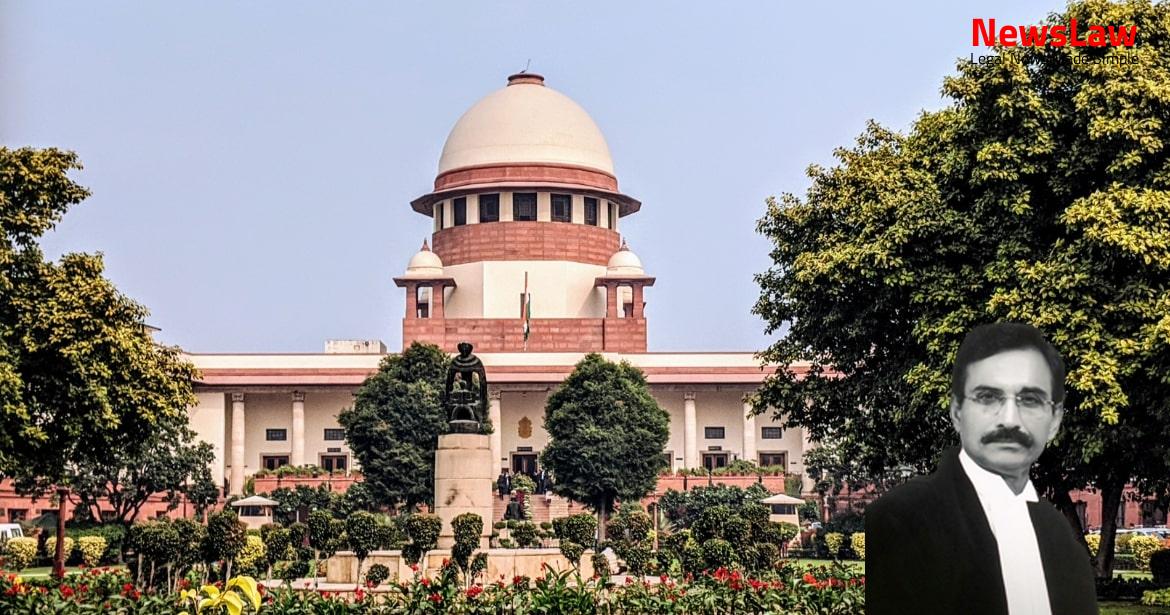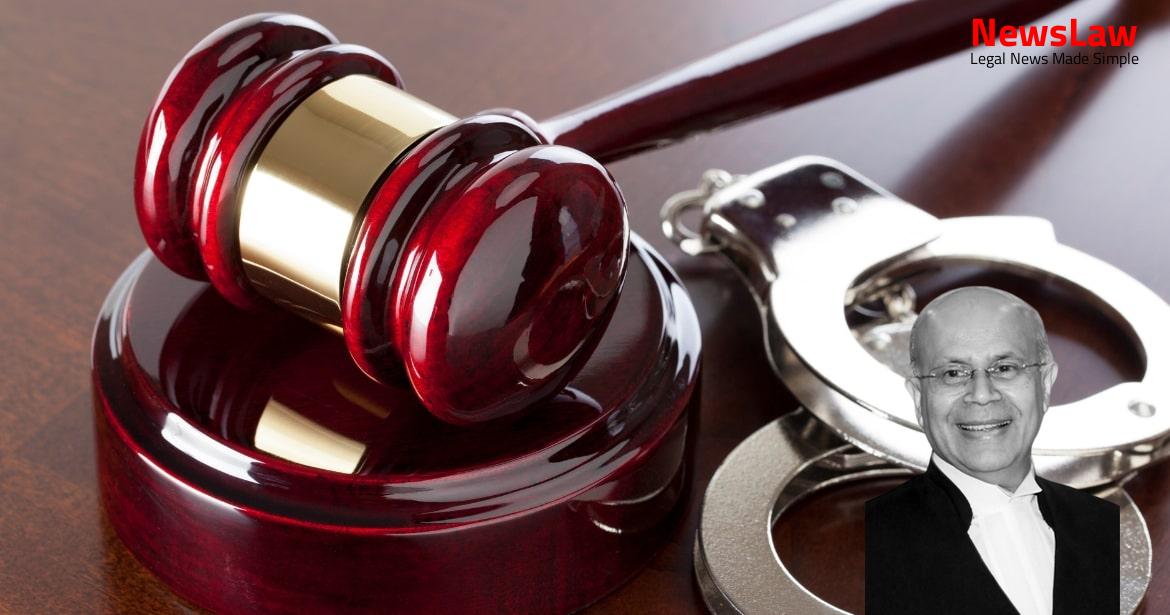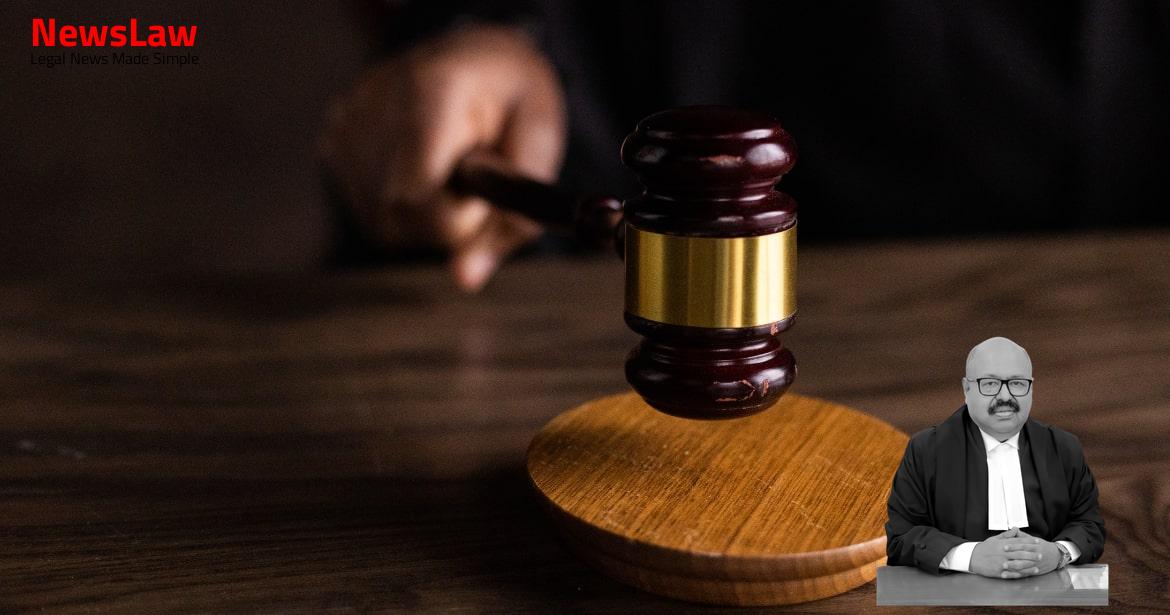In a recent landmark judgement by the Supreme Court of India, the case of Shukla v. State focuses on the invocation of Section 319 Cr.P.C. The case delves into the circumstances surrounding the decision to summon Subhash Chandra Shukla as an accused in a criminal investigation. Stay informed about the nuances of legal proceedings and the evidentiary requirements in criminal trials. Read on for a comprehensive overview of the Court’s ruling on the invocation of Section 319 Cr.P.C.
Facts
- Shiv Kumar Mishra lodged the complaint at the Meja Police Station on 06.09.2013 at 18:15 hours.
- FIR No.275/2013 was registered against five accused persons under various sections of the IPC.
- Witnesses Anand Kumar Mishra, Dev Narain Mishra, and the complainant saw the incident.
- Elder brothers of the complainant, Sangam Lal Mishra, and Sunil Kumar Mishra tried to stop the accused from abusing, resulting in an altercation.
- Accused Sashendra Shukla fired from a pistol with the intent to kill Sunil Kumar Mishra.
- Investigation of the case was initially handled by the local police and later transferred to C.B.C.I.D.
- Charge sheets were filed against three accused persons initially, followed by a supplementary charge sheet against another accused.
- The complainant filed a petition to include Subhash Chandra Shukla as an accused under Section 319 Cr.P.C.
- Accusations include the second respondent using a homemade pistol to attack the deceased on his head.
- Witnesses Shiv Prakash Mishra, Anand Kumar Mishra, and Sunil Kumar Mishra were examined in the case.
- The trial began around August 2016, stemming from the incident on 06.09.2013 resulting in injuries and the unfortunate demise of Sangam Lal Mishra.
- The revision petition filed by the complainant was dismissed by the High Court due to lack of evidence to summon the second respondent as an accused.
- Charge sheet was filed against three accused persons, excluding the second respondent, based on the investigation findings.
- The power under Section 319 Cr.P.C. was considered in light of compelling reasons as per established judicial precedents.
- The trial court dismissed the application under Section 319 Cr.P.C. citing contradictions in witness statements regarding the involvement of the second respondent.
- Verification confirmed the presence of the proposed accused at a different location during the incident, casting doubt on the second respondent’s presence at the scene.
Also Read: High Court Acquittal Case of State of Uttar Pradesh v. Jai Prakash
Arguments
- The distance between the place where the second respondent was working and the incident was only about 30 Kms.
- The High Court relied on Bijendra Singh, which was deemed as an error.
- The FIR clearly named all five accused including the second respondent.
- Despite witness testimony implicating the second respondent in the attack on the deceased, the Investigating Officer removed his name from the charge sheet based on the accused’s statement.
- The appellant argued that evidence implicating the second respondent should warrant invoking Section 319 Cr.P.C., but the High Court failed to consider this.
- The High Court did not give due consideration to the witness statements of PWs 1 to 3, which directly attributed the actions to the second respondent.
Also Read: Judgment Review: Supreme Court’s Ruling on the Capital Punishment Appeal
Analysis
- Section 319 Cr.P.C. allows the trial court to summon any person as an accused if it appears from the evidence that such person has committed an offense.
- The discretion under Section 319 Cr.P.C. cannot be exercised just based on mention of a person’s name or some material against them.
- The court can exercise its power under Section 319 Cr.P.C. at any stage during the trial.
- If it appears from the evidence that a person not being the accused has committed an offense that can be tried together with the accused, the court may proceed against such person.
- If the court proceeds against a person under Section 319, the proceedings for that person will start afresh and witnesses will be re-heard.
- The power under Section 319 Cr.P.C. should be exercised sparingly.
- The degree of satisfaction should be more than the degree warranted at the time of framing charges against others.
- The test for summoning an additional accused under Section 319 Cr.P.C. is higher than for framing a charge against the accused.
- The standard of proof for summoning under Section 319 Cr.P.C. is more than a prima facie case but less than what would lead to conviction if unrebutted.
- The power under Section 319 Cr.P.C. is discretionary and extraordinary, to be used only when circumstances warrant.
- Contradictory statements and lack of strong evidence led the courts to rightly refuse to summon Subhash Chandra Shukla as an accused.
- Witness statements and investigation findings indicated Shukla was not present at the place of the incident.
- The purpose of Section 319 Cr.P.C. is to try a person together with the accused if evidence supports such a trial.
- Power under Section 319 CrPC is discretionary and extraordinary.
- It is to be exercised sparingly based on the circumstances of the case.
- The power should not be used just because the judge feels another person may be guilty.
- It should only be used when strong and convincing evidence emerges during the trial.
- The power should not be used casually or in a cavalier manner.
- Both the High Court and the trial court agreed that the evidence provided was insufficient to summon the second respondent as an accused in the case.
Also Read: Compromise Reached: Reddy Satyanarayana vs Narapureddy Sanyasi Rao
Decision
- The findings of this Court in this appeal and the High Court in the revision are to be considered only for the purpose of the appeal and revision respectively.
- The findings should not be seen as expressing an opinion on the main case.
- No substantial grounds warranting interference have been found, leading to the dismissal of the appeal.
- The trial court is directed to proceed with the trial in S.T. No.26 of 2015 in accordance with the law.
Case Title: SHIV PRAKASH MISHRA Vs. THE STATE OF UTTAR PRADESH
Case Number: Crl.A. No.-001105-001105 / 2019



